Here at CL headquarters, we get inundated with an ass-load of music. In fact, we're mailed so many CDs every week, we don't have room to review even 10 percent of the stuff. But that won't stop us from trying! To that end, we're devoting extra space this issue to offer our highly regarded opinion (sarcasm) on a bunch of new music. Check it out:
Apostle Of Hustle
National Anthem of Nowhere
Arts & Crafts
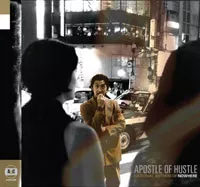
The Deal: Second release from Broken Social Scene side project, Apostle of Hustle.
The Good: Andrew Whiteman is more proof those socialist Canadian bastards are cloning superior rock talent in their embryo-killing stem-cell labs -- probably between legalized pot breaks and gay marriage ceremonies.
Whiteman is the hustling Apostle, in addition to his guitar duties with Toronto's mega-collective Broken Social Scene. National Anthem of Nowhere is an apt title for this adventurous set with nomadic influences ranging from pulsing Joy Division bass lines and Tortoise jazz-scapes to Cuban son, Memphis-white-boy soul and 1960s' Brit-pop confections. Whatever the style, Whiteman's six-string skills are a catalogue of cool: warm-toned Tom Verlaine textures, Jeff Beck fuzz, and Marc Ribot Latin boogie (he, too, plays the Cuban tres).
Whiteman is the songwriting heartbeat of BSS, and there are moments when National Anthem captures that band's joyous unpredictability and horn-splashed grandeur -- particularly on the title cut and album highlight "Cheap Like Sebastien." But Apostle's music usually has more modest aims. It wins listeners over with dimmed-lights, intimacy and increased focus more often than full-chorus sing-alongs and arena-sized hooks -- even stripping some songs down to acoustic guitar, keys and brushed drums.
The Bad: It's hard not to hear the Apostle through the prism of BSS' ramshackle audio kaleidoscope, which can diminish anyone's luster. And though Whiteman lived in Havana for a year and does a mean Ribot, the Latin flavors occasionally feel, well, sort of Canadian.
The Verdict: The next best thing to BSS.
– JOHN SCHACHT
Dub Trio
New Heavy
ROIR
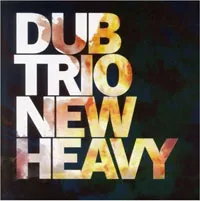
The Deal: Punked-up dub riding on interstellar dust.
The Good: The instrumental posse Dub Trio loves to mess with your head. Just when you get comfy in a spacey dub groove, the boys rip open guitars with breakneck hardcore and punk. There are even bits of squeezebox tango and tropical trip-hop bubbling in the mix. Mike Patton (Fantomas, Mr. Bungle, and Faith No More) lends his distinct voice to the album's only vocal track, "Not Alone."
The Bad: The recording quality is a tad on the lo-fi side, though the bass sounds mighty phat, and the band maybe shifting the musical gears a bit too quickly for some folks to digest.
The Verdict: This is a prime collection of tracks for those who want to chill for a spell on island vibes and then go motoring down the interstate at rash speeds within the same tune.
– SAMIR SHUKLA
Younger Sister Band
No Desire
Monvercomp
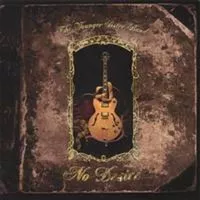
The Deal: Asylum Street Spankers meet the Amazing Rhythm Aces with a little help from Duane Allman.
The Good: Even though their biography boasts a glowing Pete Seeger quote, The Younger Sister Band, straight outta Brooklyn, is more about rock than folk. Originally an all-girl bluegrass band, only two unrelated sisters, Fletcher Boote and Jessica Seagall are left in what's now a quintet putting out country rock with a gospel tinge.
"Not One Drop" sounds like early Allman Brothers backing Maria Muldaur. "It's Too Hot" is a trainwreck but a highly satisfying one -- sounds like a drunken choir on the back porch at midnight.
But the girls can do some pure country when the mood strikes 'em. "Murphisboro" sounds like it could be a lost outtake from a June Carter Cash session, perhaps a bastard child of the massive Carter Cash duet "Jackson." Stacey Earle would be proud to claim "Do Right,"
The Bad: The problem here is the men. Although the songs are strong, the male vocals are not -- they just don't step up. "Sampson" is too mush-mouthed for its strongman subject. The girls' harmonies are pretty behind the lead, but there's just no punch up front. "Strong Box" is a great song complete with a nasty, greasy slide that should have made the cut radio ready. But once again, it needs more rasp, more edge. Toward the end of the record, even the girls get tired. "When I'm Gone" has great potential with a slap in the face rockabilly gallop and plenty of attitude in the lyrics. But Boote just mumbles the vocals. Christ! If you're able to write this stuff, you oughta be able to put some feeling in it when you perform it. Even if you don't feel it, seems like you could throw down a few glugs of whiskey to get in the mood, then belt it out like yore guts are on fire, at least for the record.
The Verdict: The guys do great with the instruments, but make it hard to get fired up over their vocals. Go see 'em live and yell at 'em to turn it up a notch -- this is music you should get excited about, even if they don't sound like they are.
– GRANT BRITT
Isis
In the Absence of Truth
Ipecac

The Deal: Neurosis crossed with Pink Floyd and Black Sabbath resulting in stoner rock for this young century's musically blossoming generation.
The Good: This LA-based band knows how to slowly build tension until you either pull your hair out or start flailing it in a rhythmic trance. There is a method to the epic riffage, which is composed with an ear for the subtle undercurrents of melody and generous use of rising and falling tension.
The Bad: The slow building and layered bombast, along with the loooong tunes, may work against them in radio-land. The attention-deficit crowd just won't get it and that's a damn shame.
The Verdict: This is hard, thick music made without any trendy hang-ups. Believe it or not, Isis' music has a meditative, almost medicinal aura. Hell, consider it dance music of the future.
– SHUKLA
CHUCK E. WEISS
23rd & Stout
Cooking Vinyl
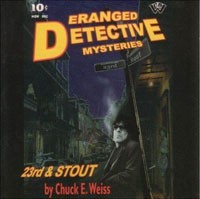
The Deal: Weirdo noir tales from L.A. scenester Chuck E. Weiss.
The Good: Weiss' third solo release in 30 years suggests there's still some hip left in the ultimate hipster's shtick, even if his old Tropicana Hotel neighbor Tom Waits zipped past him creatively decades ago. On 23rd & Stout, Weiss again peers beneath LA's slick veneer in narratives populated by colorful Bukowski lowlifes and Fante down-and-outers with names like "Pork Chop" and "Piccolo Pete" -- questionable characters who invariably meet their fates in altered states.
23rd wanders through a good portion of the American songbook: low-down filthy swamp blues (Weiss played with Muddy Waters and Willie Dixon); beatnik bebop, street corner doo-wop, Carney music, country blues laments, and greasy rockabilly. Weiss' crackerjack band includes some of LA's most frequently hired guns -- among them ex-X guitarist Tony Gilkyson, drummer Don Heffington and reeds-man David Ralicke -- and the sinuous groove they lay down at times is as thick as a Friday rush hour on the 405.
The Bad: Poor Chuck. Forever destined to toil in Waits' shadow, and probably better known for his twin roles as the subject of Rickie Lee Jones' "Chuck E's In Love" and as co-owner of the Viper Room with Johnny Depp. But Weiss has no one to blame but himself when it comes to ubiquitous Waits comparisons; when you put out one record a decade, you should probably avoid Swordfishtombrones-like drunken sailor stomps or crooning in an ashtray rumble circa Small Change.
The Verdict: Not Tom Waits.
– SCHACHT
Múm
The Peel Sessions
Fatcat/BBC

The Deal: Techno-pop with classical sentiments from eclectic Icelandic combo.
The Good: This 4-track E.P., made at the legendary BBC radio show once hosted by John Peel, features mostly instrumentals by a quartet from that quirky island in the North Atlantic. A floating dreamscape is created by Múm with the use of laptops mingling with organic instrumentation of cellos and harmonium. The whispered female vocals on one track induce further daydreaming.
The Bad: There's a tendency for sameness, but we can forgive them here since this is essentially a recording of a short radio performance. It may also be a tad pretentious, but the quartet's sense of timing and exploration of sounds works in their favor.
The Verdict: The sound-twisting ethos so favored by most Icelandic bands (Sugarcubes, Bjork) continues with Múm's forward-reaching compositions.
– SHUKLA
Donna Hughes
Gaining Wisdom
Rounder
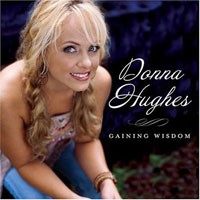
The Deal: Local songwriter's big time singing bid.
The Good: Trinity native Donna Hughes had been penning songs for a decade for bluegrass big shots including Allison Krauss and the Seldom Seen before Tony Rice heard her last solo album and called her offering to produce. Rice plays guitar on most cuts as well. Hughes' voice is similar to Krauss's, a little smoother and fewer nasals, but still with plenty of high and lonesome twang.
Hughes wrote all but two of the cuts. Covering Cindi Lauper's "Time After Time" bluegrass style is a bit difficult to wrap your head around at first, but after it goes by the first time it seems a natural fit.
It's a pretty album, not the galloping yee-haw kind of bluegrass, but low-key, quiet, introspective stuff more suited to a singer/songwriter. But just so you won't nod off, Hughes brings in Sam Bush for some fleet-fingered fret work on mandolin on the rollicking "Where Are You Darlin'" and the uptempo love song "Too Many." Hughes' voice is pretty enough by itself, but with the harmonizing help of Mary Chapin Carpenter, Rhonda Vincent and Krauss, it's ethereal.
The Bad: The fact that nobody noticed how good a singer she is until now. Although she's made a significant contribution to the bluegrass world with her pen, Hughes needs to get out more with her voice.
The Verdict: Get you some to take home until you can get out to see her.
– BRITT